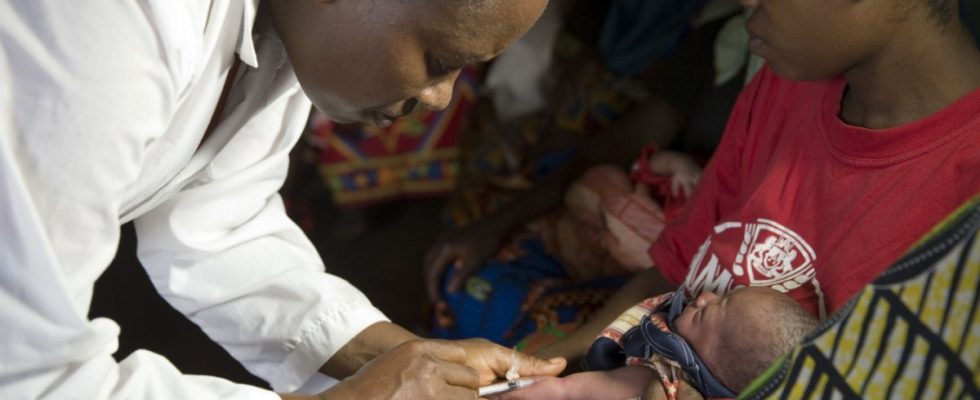Meanwhile, tuberculosis (TB) has regained its sad top spot. It is again the infectious disease that claims the most lives worldwide. There were 1.6 million in 2021. For a short time, the corona pandemic resulted in even more deaths until vaccines brought about a change – developed at a pace that TB experts did not even dare to dream of. Researching new vaccines against the ancient pulmonary disease was an extremely tough undertaking for decades.
To date, there is only one vaccine against the disease. It is 100 years old and has limited effectiveness. The vaccine called BCG, short for Bacille-Calmette-Guérin, is relatively effective at protecting young children from forms of TB that do not affect the lungs and are relatively common in them. No age group provides adequate protection against the most typical and common form of the disease, pulmonary tuberculosis.
But in recent years, fueled by rising resistance to TB drugs and advances in vaccine technology, research has picked up speed. About 17 different TB vaccines are currently being tested in humans. One of the most notable is a protein vaccine called M17, developed by British pharmaceutical manufacturer GSK and supported by the Gates Foundation, among others. He is considered a particularly promising candidate, which is why the world’s two largest foundations for the promotion of medical research, the Gates Foundation and the British Wellcome Trust, are now investing 550 million dollars in further testing.
Even a 50 percent effectiveness can still prevent many deaths
In a phase 3 study, the vaccine is to be tested on 26,000 people from more than 50 locations in Africa and Asia starting in 2024. It is intended to protect people who have already been infected with TB from the outbreak of pulmonary tuberculosis. It could take four to six years for results to be available, representatives of the two organizations estimated at a press conference on Wednesday. The hope behind this complex and expensive project: to get “a game changer”, as Alex Pym puts it, who heads the infectious diseases division at the Wellcome Trust.
It remains to be seen whether this will succeed. In the phase 2 study three years after its administration, the vaccine only just managed to meet the minimum requirement of 50 percent effectiveness set by the World Health Organization (WHO). Nevertheless, according to the two sponsors: Even a 50 percent effectiveness could prevent 8.5 million deaths and 76 million illnesses over the course of 25 years.
A vaccine developed in Germany is also well advanced. VPM1002 is a genetically engineered BCG vaccine. It is already being tested in three phase 3 studies in children and adults. He expects the first results as early as next year, says Stefan Kaufmann from the Max Planck Institute for Infection Biology in Berlin and one of the developers of the vaccine. If the data is convincing, a first introduction could be expected in 2025 or 2026. “I can’t imagine that another vaccine is faster,” says the biologist. But even with this product, it still remains to be seen who could benefit in which way. The previous studies had primarily focused on tolerability, which was better than with the conventional vaccine. “It will be several years before we have an approved TB vaccine,” estimates Hazel Dockrell, TB expert at the London School of Hygiene & Tropical Medicine.
The work on TB vaccines is much more complex than on corona vaccines
But why does it take so long when vaccines against Sars-CoV-2 came onto the market in a very short time?
One reason is the lack of funding, as the WHO has repeatedly complained. Years passed before the money for further tests of the M72 vaccine was found. GSK has made it clear that the vaccine will not be a commercially viable product, says Trevor Mundel, director of global health at the Gates Foundation. So eventually the philanthropic organizations stepped in to continue research on the vaccine. “Tuberculosis is the disease of poverty,” says Mundel.
But apart from the lack of money, the development of a TB vaccine is more difficult than the research on the corona vaccines. “We don’t know how to assess the potential protection of a new TB vaccine,” explains Hazel Dockrell. While the effect of the corona vaccines against Sars-CoV-2 can be estimated quite well by the amount of antibodies formed, there are no such reliable markers for TB.
Researchers are therefore more dependent on the complex and expensive studies that determine the effectiveness based on infections, diseases or deaths that are actually prevented. Because it can take years for TB infection to develop into disease, studies can be lengthy. A number of other factors also need to be considered. For example, previous vaccinations with BCG, the presence or absence of a latent TB infection, other infections such as infection with HIV or other mycobacteria – all of these could have an impact on the tolerability or effectiveness of the vaccination and must also be investigated.
The only thing that is certain at the moment is that better vaccination protection is needed. A quarter of the world’s population carries tuberculosis bacteria in their bodies. If the immune system is intact, it will keep the pathogens in check – usually for life. But about every tenth infected person has to experience how the bacteria exploit weaknesses in the immune system, spread and cause active tuberculosis. Without a complex, months-long treatment – and increasingly endangered by resistance – every second of them is at risk of death.

